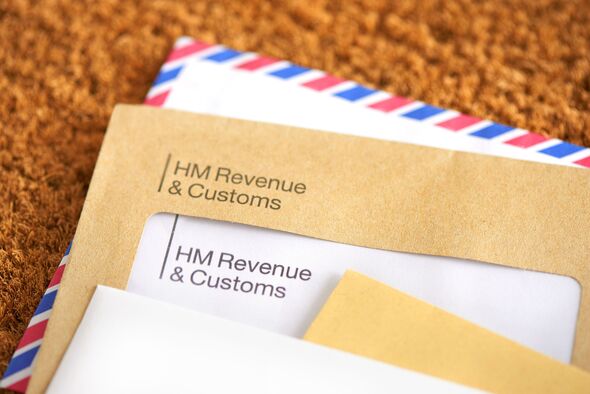A former Royal Mail postman, John McKinney, 42, has been sentenced for multiple fraud-related crimes, including using stolen identities and stealing mail. McKinney, who once held a position of trust, exploited his access as a postman to carry out a series of fraudulent activities to alleviate his financial troubles. His actions resulted in significant distress for the victims involved.
Fraudulent Use of Stolen Identities
McKinney, from The Glebe, Cubert, recently appeared at Truro Crown Court, where he pleaded guilty to a series of fraud charges. These included making false statements to obtain a driving licence, possessing identity documents with fraudulent intent, perverting the course of justice, and stealing mail. Additional charges involved theft of a Rolex watch, fraud by false representation, and making untrue statements to obtain a passport.
Prosecutor Tom Faulkner explained how McKinney’s fraudulent activities began in 2015. That year, McKinney applied for a passport using the name Reece Warner. To support the application, he submitted forged documents, including a marriage and birth certificate. The passport was issued and sent to McKinney’s address, where he used it to open bank accounts.
However, the scam unravelled a year later when authorities identified the passport as fraudulent. The passport was immediately cancelled. The real Reece Warner described the ordeal as “stressful and mentally draining.” He was forced to deal with debt collection agencies and attend passport interviews to prove his true identity.
Obtaining the Driving Licence
McKinney’s fraudulent activities didn’t stop there. In 2019, he applied for a provisional driving licence using another false identity, this time under the name Jack Brewer. He used a photograph of himself in the application. After receiving the provisional licence, he successfully passed a driving test under the false name, securing a full driving licence as Jack Brewer.
A fraud investigation later revealed that the Hertz car rental company, which does not permit provisional licences for vehicle rentals, had only rented a vehicle to McKinney on the day of the driving test. McKinney’s motive for using the fake driving licence was primarily to dodge penalty points under his real name.
By August 2023, McKinney’s fraudulent tactics had escalated. Using the fraudulent Jack Brewer identity, he obtained car finance for a Volkswagen Golf valued at over £20,000. He presented bank statements under Brewer’s name to facilitate the finance. Prosecutor Faulkner stated that McKinney’s financial situation was precarious, and he would not have been approved for finance using his real details.
Theft of Chequebooks
In September 2023, while employed by the Royal Mail in Truro, McKinney misused his role as a postman to steal chequebooks intended for elderly residents. This series of thefts resulted in several complaints from the affected individuals, who reported not receiving their chequebooks and noticed fraudulent transactions in their bank accounts.
Further investigation revealed that the stolen cheques were deposited into the Jack Brewer bank account, which McKinney had set up earlier. In total, the fraudulent cheques amounted to over £9,000. A handwriting expert later confirmed that McKinney was responsible for writing the cheques, leading to his guilty plea.
Rolex Watch and Pawn Shop Deception
In January 2024, McKinney’s fraudulent behaviour took another turn. He pawned a Rolex watch valued at £2,500 at Dinero Jewellery in Penzance. Two months later, he returned to the jewellery store and requested to see the watch. Staff discovered that the box was empty, and the watch was reported stolen.
McKinney’s downfall came in September 2024 when he was arrested while wearing the stolen Rolex, complete with its original serial number. This clear evidence further cemented the case against him.
Defence Claims of Financial Hardship
Ryan Murray, McKinney’s defence solicitor, told the court that his client offered an “abject apology” to his victims. Murray highlighted McKinney’s financial struggles, particularly after rising interest rates tripled his mortgage. According to Murray, McKinney’s financial strain led to desperate measures, culminating in the fraudulent acts.
Murray noted that McKinney had since lost his home and possessions, a reality he described as losing “everything that was previously precious to him.” Additionally, Murray stated that McKinney was unaware the stolen chequebooks belonged to elderly individuals. However, this explanation did little to mitigate the severity of the offences.
Sentencing
In sentencing, Judge Robert Linford did not hold back on criticising McKinney’s actions. He described the thefts from the mail as a “gross breach of trust.” Judge Linford stated, “The facts set out the depths of dishonesty to which you have sunk. This got worse when interest rates increased, and you struggled to keep yourself afloat.” The seriousness of the offences left the judge with no choice but to impose a custodial sentence. McKinney was sentenced to 38 months in prison for his role in the series of scams.
McKinney’s fraudulent activities significantly impacted his victims, many of whom were elderly and vulnerable. While banks have reimbursed some of the financial losses, the emotional toll on those affected remains substantial. The case underscores the importance of fraud awareness and the need for strict measures to stop fraud before it occurs.
A Unique Case
In cases like this, where a trusted individual abuses their access to sensitive information, protecting yourself from fraud can be extremely challenging. When a fraudster has full access to your mail, they hold a treasure trove of personal data. This data includes bank details, financial statements, and identity documents—everything needed to commit identity theft and other forms of fraud. Although the damage in this case was significant, it could have been far worse in the hands of a more experienced fraudster.
The incident highlights just how valuable your mail is. Simple measures can help secure your sensitive information. For example, mail redirection services ensure that your mail is delivered to a secure location if you move house. Consider opting for online statements and reducing the amount of sensitive information sent through the post. Additionally, installing a lockable letterbox or using a secure mailbox service can add another layer of protection.



